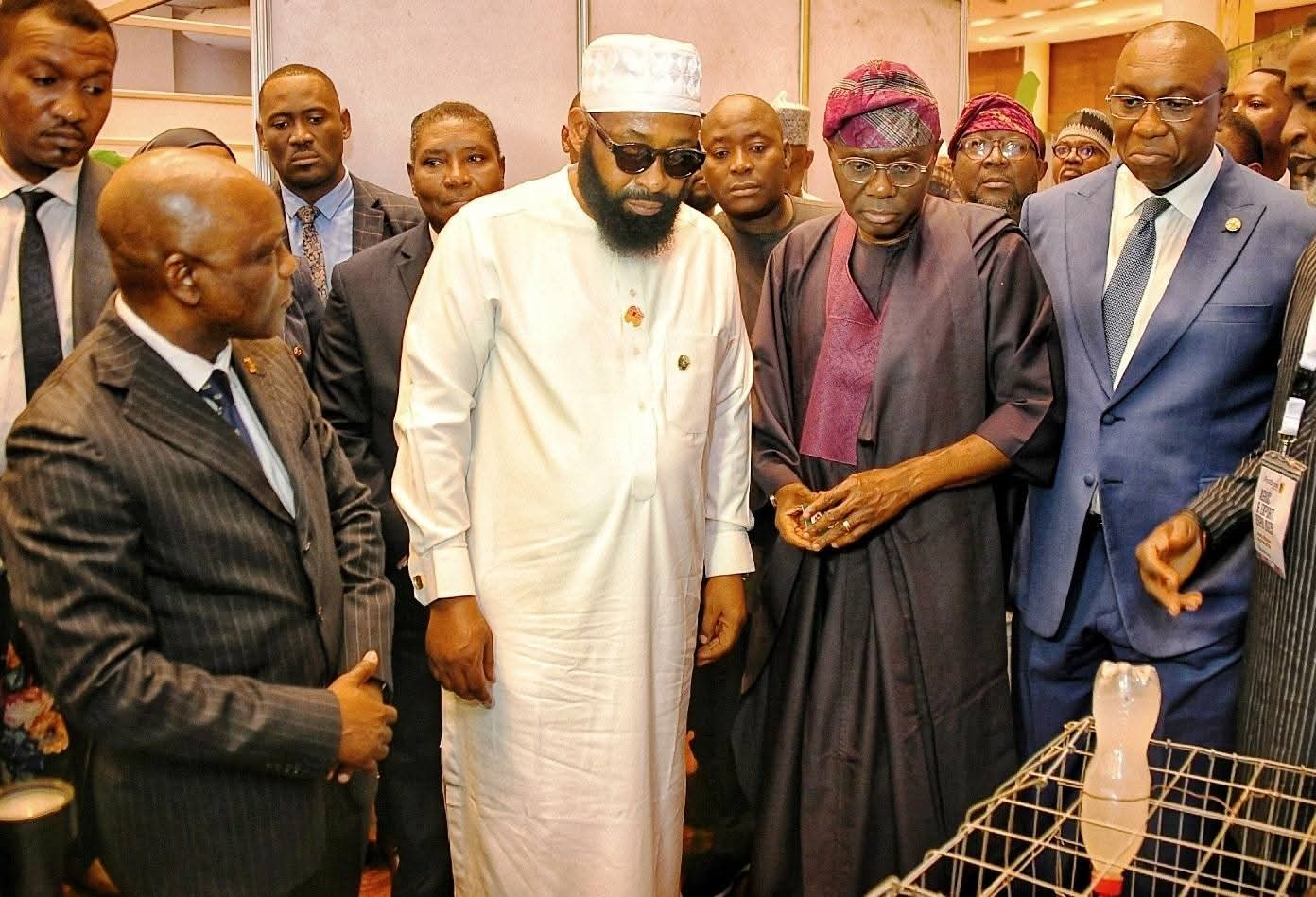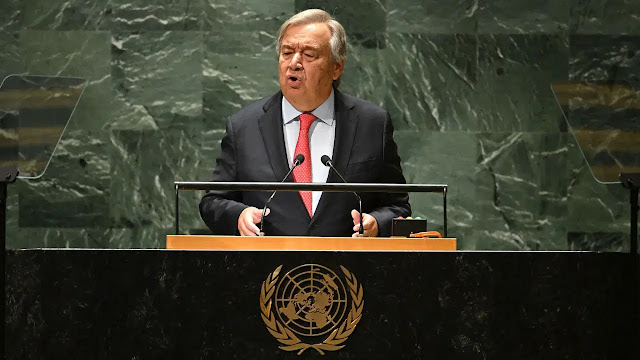Nigeria Loses Real Wealth In Exporting Raw Commodities To Global Market — Sanwo-Olu Says

Nigeria’s agricultural produce is ripe for export competitiveness at the global market, but access to finance for local farmers to meet the demand and quality needs remains the main drawback impeding the pathway of local crops from getting to global supermarkets.
This was the assertion of Lagos State Governor Babajide Sanwo-Olu at the First Bank 2025 Agric and Export Expo held at the Eko Hotels and Suites, Victoria Island, on Tuesday.
The Governor said despite Nigeria’s improving crop production, the nation’s share of agricultural exports in global market share remained far below what it should be, noting that the nation only exported raw commodities rather than finished products, thereby losing out on the real wealth and jobs that could come from processing, packaging, and branding of products.
The event with the theme: “The Fundamentals of Building an Export-Driven Economy”, brought together policymakers, investors, producers, and entrepreneurs on the discussion table to chart a course for diversification of Nigeria’s economy through agriculture and exports.
Governor of Niger State, Umar Bago, joined his Lagos State counterpart at the forum.
Sanwo-Olu said agriculture had provided the nation with immense opportunity to grow its GDP, stressing that Nigeria was not only blessed with arable land, but also an energetic young with resilient entrepreneurial spirit.
This, the Governor said, made it imperative for the country to fully harness its agrarian resources and move its economy away from overdependence on oil, while building a resilient economy that would be anchored on productivity, value addition, and competitiveness in non-oil exports.
Sanwo-Olu said: “The economic realities confronting us today, from the volatility of global oil prices, to the pressures on foreign exchange, to the rising cost of imports, point to a single truth: Nigeria must urgently broaden its economic base. We must move away from overdependence on oil and build a resilient economy that is anchored on productivity, value addition, and competitiveness in non-oil exports.

“In Lagos, we have continued to invest heavily in infrastructure, including roads and bridges that connect farms to markets, to the modernisation of our ports and waterways, to digital platforms that simplify trade processes. But infrastructure alone is not enough. Export competitiveness requires access to finance. Too often, we export raw commodities rather than finished products, thereby losing out on the real wealth and jobs that come from processing, packaging, and branding.
“Global marketplace is not waiting for Nigeria. Other African countries are aggressively positioning their agricultural products, securing market share, and driving investments into agribusiness. For Nigeria to take its rightful place, we must be intentional, strategic, and relentless in pursuing non-oil export growth. This is where the role of financing institutions like First Bank is so critical to enhance access to capital for farmers to meet global needs in demand and quality.”
Sanwo-Olu said there had been renewed efforts by President Bola Ahmed Tinubu to increase non-oil export over the last two years, pointing out that agricultural output had increased based on the support farmers had received from the current administration.
The Governor said the quarterly report of exports showed constant movement of farm produce to the global market, but said more value could be derived from the exported products if the goods were supplied in finished forms.
“Lagos is the launchpad for our nation’s engagement with the global economy. The vast majority of goods exported out of Nigeria pass through Lagos ports, airports, and logistics corridors. This places on us a responsibility to create an enabling environment for agribusiness, value addition, and export competitiveness. Without access to finance to turn farm produce to finished goods, export of raw commodities would continue to make Nigeria lose real wealth in the global market,” Sanwo-Olu said.
Bago said a nation that only exported raw products to global markets without processing to finished goods would be shortchanged of the real value of their exports.
The Niger State’s helmsman said if value was added to raw products, the producers would determine the global price for their produce.
He said farmers in his State had been benefiting from protein production and supplies of dairy products, but noted that the State Government was in the phase of empowering them with knowledge and capacity to turn their raw produce to finished products in order to earn more from the food market.
He said: “We have started looking at the possibility of stopping supply of live cows to Lagos market. I will terminate supplies of cows and goats coming to markets in Lagos and Ogun states at Mokwa, so that the animal wastes won’t be littering your states again. We will process the meat from Niger State and just bring down frozen meats to the market. This is how Niger State farmers can fully appreciate the economic opportunities they create in cattle rearing.”

Bago also said he would be increasing the size of land Niger State pledged to Lagos for mass agricultural production from 20,000 hectares to 100,000 hectares in order to increase supplies and meet market demand.





